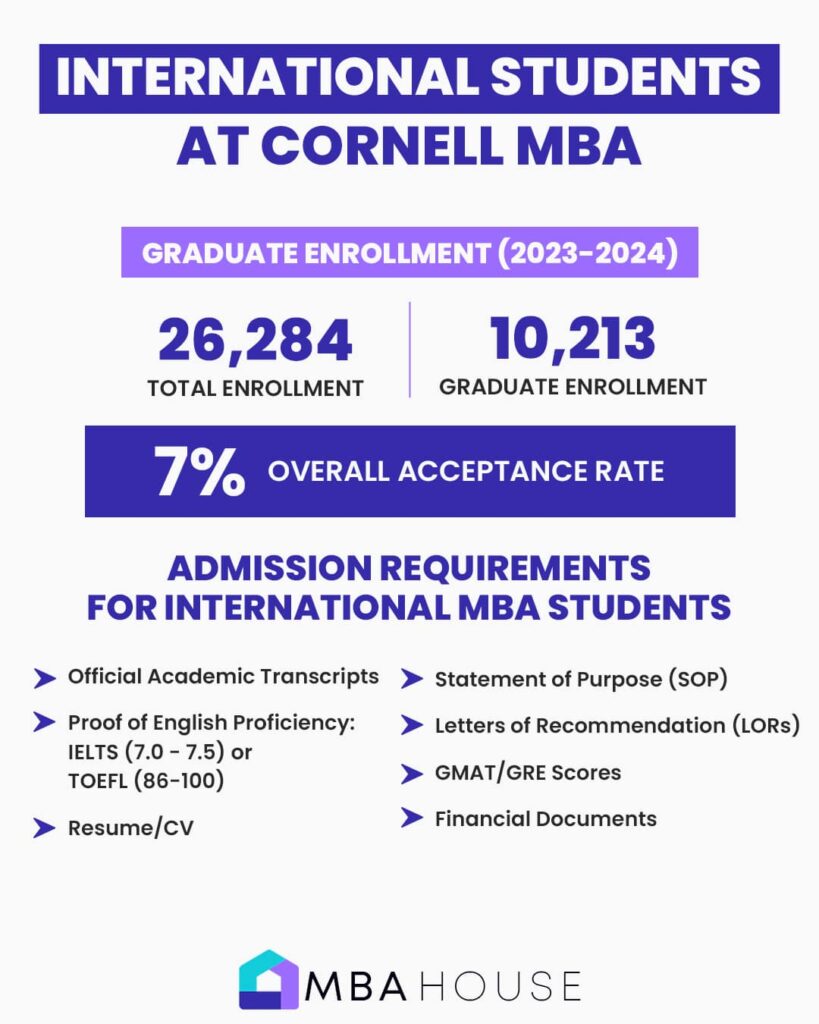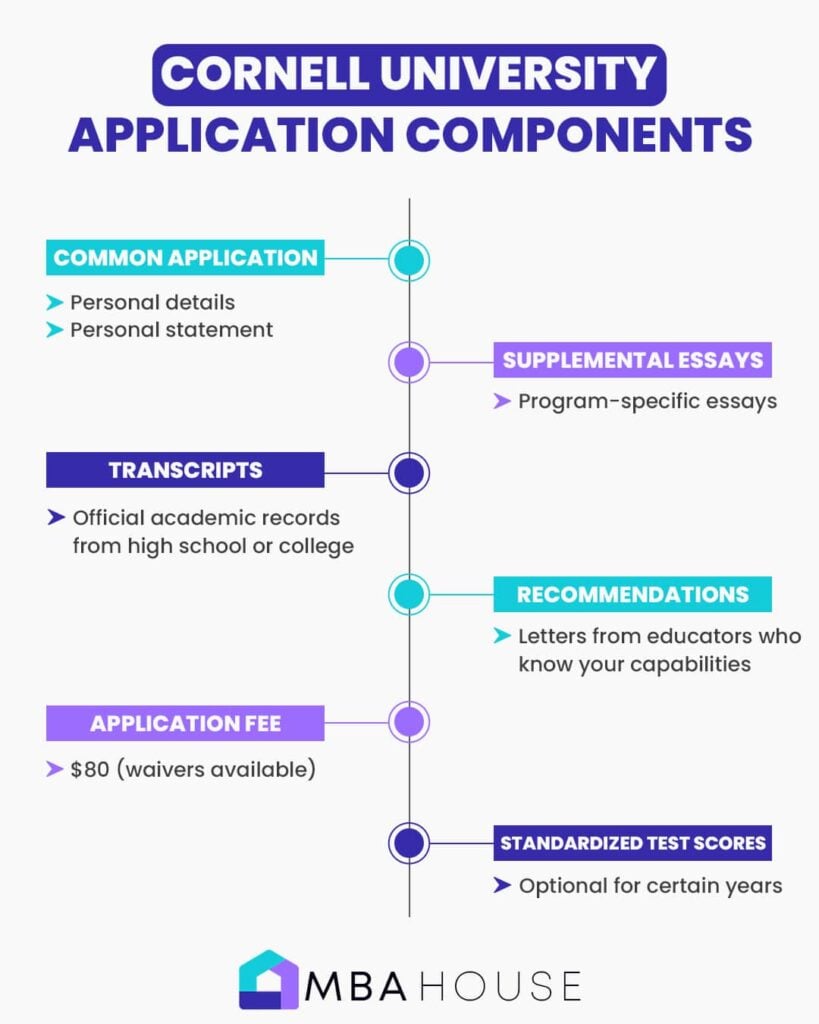One of the globally renowned Ivy League universities, Cornell University is a public university with its main campus located in Ithaca, New York, United States. It is consistently ranked among the top 25 global universities, making it one of the best study-abroad options for international students. Cornell’s rankings remain impressive, with the university currently positioned at:
- #12 among National Universities
- #20 in Best Value Schools
- #10 for Best Undergraduate Engineering Programs
These rankings, combined with excellent programs, a stellar reputation, and highly qualified faculty, make Cornell a compelling choice for students worldwide. Notably, Cornell was the first Ivy League university to accept women students and is unique as the only public Ivy League institution.
With over 900 student organizations available, Cornell fosters a vibrant and engaging campus environment, encouraging students to explore their interests beyond academics.
It’s no wonder that aspiring students are drawn to this Ivy League gem. But what does it take to gain acceptance? In this blog, we’ll delve into the Cornell University acceptance rate, explore various factors influencing admission, and provide tips to enhance your application.
Cornell University Acceptance Rate
According to Cornell University enrollment statistics for 2023-2024, the university has a total enrollment of 26,284 students, comprising 16,071 undergraduates and 10,213 graduates. The Cornell University acceptance rate stands at 7% for this academic year.
For the Class of 2028, Cornell admitted 5,139 students, reflecting an estimated acceptance rate of 7.5%. This number signifies how competitive the admissions process can be, especially as Cornell continues to attract a larger pool of applicants.
International Students at Cornell
Among the 16,071 undergraduate admissions, 1,649 students were international, accounting for 10.26% of the total. The distribution of students by ethnicity/race at Cornell University is as follows:
| Ethnicity/Race | Headcount |
| Nonresident aliens | 1,649 |
| Hispanic/Latino | 2,329 |
| Black or African American, non-Hispanic | 1,192 |
| White, non-Hispanic | 5,009 |
| American Indian or Alaska Native, non-Hispanic | 35 |
| Asian, non-Hispanic | 4,014 |
| Native Hawaiian or other Pacific Islander, non-Hispanic | 24 |
| Two or more races, non-Hispanic | 880 |
| Race and/or ethnicity unknown | 939 |
Admission Requirements for International Students

To secure admission to Cornell University, international applicants must fulfill the following requirements:
- Official academic transcripts
- Proof of English language proficiency (IELTS: 7.0 – 7.5 | TOEFL: 86-100)
- Resume/CV
- Statement of Purpose (SOP)
- Letters of Recommendation (LORs)
- SAT/ACT scores
- GRE/GMAT scores (if applicable)
- Financial documents
A Closer Look at Acceptance Rates
While the overall acceptance rate provides a snapshot, it’s essential to break it down further. For instance, Cornell University’s transfer acceptance rate typically hovers around 15-20%, making it slightly less competitive than first-year admissions.
When considering the Cornell MBA acceptance rate, it is often noted for its selectivity, with around 20% acceptance for the MBA program. This figure highlights the importance of a strong application, especially for graduate students.
Cornell University Acceptance Rate Trends
The acceptance rate at Cornell University has declined in recent years:
- Class of 2026: 7.3% (5,168 out of 71,164 applications)
- Class of 2025: 8.7% (5,852 out of 67,380 applications)
- Class of 2024: 10.7% (5,514 out of 51,500 applications)
This trend reflects a growing number of applicants, with 71,164 applications received for the class of 2026.
Early Decision vs. Regular Decision
Cornell admits international students through both Early Decision and Regular Decision processes. The Cornell University early decision acceptance rate often tends to be higher than regular decision rates, offering a strategic advantage to applicants who are sure about their choice. For example, in previous years, early decision applicants have enjoyed a 10-15% higher acceptance rate than those who apply through regular decision.
Here’s a breakdown for the class of 2026:
| Decision Type | Applications Received | Students Accepted | Acceptance Rate |
| Early Decision | 9,555 | 1,831 | 19.20% |
| Regular Decision | 61,609 | 3,077 | 5% |
Is Getting Into Cornell Worth It?
Many students ponder, “Is getting into Cornell worth it?” The answer often lies in personal goals, career aspirations, and financial considerations. Cornell’s reputation, extensive alumni network, and diverse programs provide students with ample opportunities, but it’s essential to weigh these benefits against tuition costs and potential student debt.
The Online Experience: Cornell’s Online MBA
For those considering flexibility, Cornell’s online MBA program offers a viable option. This program maintains the same rigorous standards as its in-person counterpart, allowing students to balance professional commitments while pursuing their degree. The Cornell University online MBA is designed for professionals seeking to advance their careers without sacrificing current job opportunities.
What Does Cornell Look For?
When reviewing applications, what does Cornell look for? The admissions committee evaluates various factors, including:
- Academic Excellence: Strong GPA and coursework.
- Standardized Test Scores: SAT/ACT scores (optional for some programs).
- Essays: Personal essays that reflect authenticity and passion.
- Extracurricular Activities: Leadership roles and community service.
- Recommendations: Insightful letters from teachers and mentors.

Application Components
To apply to Cornell, you must gather several documents and materials:
- Common Application: This includes personal details and a personal statement.
- Supplemental Essays: Specific essays based on the program of interest.
- Transcripts: Official academic records from your high school or college.
- Recommendations: Letters from educators who know your capabilities.
- Application Fee: An $80 fee is required, though waivers are available.
- Standardized Test Scores: Optional for certain years.
Enhancing Your Application
So, how do you get into Cornell University? Here are some tips:
- Take Challenging Courses: Engage in advanced classes that align with your intended major.
- Showcase Leadership: Involvement in clubs, sports, or community service can highlight your character.
- Write Compelling Essays: Use your essays to share your story and express your passion for Cornell.
- Research Programs: Familiarize yourself with Cornell’s unique offerings and how they align with your career goals.
Cornell MBA Class Profile
Understanding the Cornell MBA class profile can provide insights into what makes an ideal candidate. Here’s a snapshot of recent class statistics:
| Metric | Statistic |
| Average GMAT Score | 700 |
| Average GPA | 3.5 |
| Work Experience | 5 years |
| Gender Diversity | 40% Female |
| International Students | 40% |
Navigating the Application Process
- Prepare Early: Start your application well in advance to avoid last-minute stress.
- Engage with Admissions: Attend information sessions, campus tours, or webinars to learn more about Cornell.
- Connect with Alumni: Speaking with alumni can provide valuable insights and enhance your understanding of the school culture.
Your Path to Cornell: Simple Tips for Standing Out
Getting into Cornell University may seem challenging, but with the right approach, you can boost your chances. Here are a few simple tips from MBA House:
Excel in Academics
Strong academic performance is the foundation of a competitive application. Aim for high grades in challenging courses, particularly in subjects relevant to your intended major. Cornell values students who demonstrate intellectual curiosity and a commitment to academic excellence. In addition, excelling in standardized tests such as the SAT/ACT can give you an edge. If you’re applying to a specialized program, focus on showcasing your strengths in that field through your coursework, research, or relevant projects.
Engage in Meaningful Extracurricular Activities
Participation in extracurricular activities is essential, but depth and quality matter more than quantity. Focus on activities that genuinely interest you and align with your passions. Whether it’s leadership roles in student organizations, achievements in sports, arts, or involvement in science fairs, Cornell appreciates students who show dedication and impact in their chosen areas. Highlight how your involvement has shaped you, built your leadership skills, and contributed to your growth.
Submit Strong Letters of Recommendation
Letters of recommendation can be a powerful tool in showcasing your personal qualities beyond grades and test scores. Select teachers, mentors, or supervisors who know you well and can speak to your strengths, work ethic, and character. Encourage them to provide specific examples of your academic achievements, leadership, teamwork, and resilience. Letters that give insight into your potential to contribute positively to the Cornell community are especially valuable.
Demonstrate a Commitment to Community Service
Cornell looks for students who are not only academically capable but also dedicated to making a difference in society. Engaging in community service or volunteer work demonstrates your empathy, social awareness, and desire to contribute to the greater good. Highlight your initiatives, leadership roles, and the impact of your efforts on the communities you’ve served. This will show that you’re committed to contributing both inside and outside the classroom.
Present a Well-Rounded Character
Cornell takes a holistic approach to admissions, meaning they evaluate applicants based on academic achievements as well as personal qualities. Showcase your integrity, resilience, and curiosity in your application essays. Cornell is looking for students who have a passion for learning, can overcome challenges, and possess a strong moral compass. Use your personal statement and supplemental essays to tell your unique story—highlight what drives you, how you’ve grown, and what you hope to bring to the Cornell community.
Craft a Compelling Personal Statement
Your personal statement is your opportunity to show who you are beyond numbers and achievements. Take time to reflect on your journey, the challenges you’ve faced, and the experiences that have shaped you. Cornell values students who are introspective, authentic, and passionate. Be sure to connect your personal experiences to your academic goals and how they align with Cornell’s values. This is your chance to make a personal connection with the admissions committee, so write thoughtfully and honestly.
Showcase Leadership and Initiative
Cornell is drawn to applicants who have demonstrated leadership and initiative in various areas of their life, whether it’s academics, extracurriculars, or community service. Highlight instances where you’ve taken on leadership roles, launched projects, or solved problems creatively. Admissions officers want to see that you’re proactive, capable of driving change, and prepared to lead within Cornell’s dynamic campus environment.
Prepare for Interviews
If you’re invited to an interview as part of the admission process, use this opportunity to showcase your enthusiasm for Cornell and your personal strengths. Be prepared to discuss why Cornell is the best fit for you, your long-term goals, and how you intend to contribute to campus life. The interview is also a chance for the admissions team to assess your communication skills, confidence, and ability to think on your feet.
By excelling academically, being involved in meaningful extracurriculars, and presenting a well-rounded, thoughtful application, you can strengthen your chances of earning a spot at Cornell University. Remember, admissions committees want to see not only your achievements but also your potential to thrive and contribute to their community.
More Acceptance Rate Pages
At MBA House, our admissions consulting is personalized to help candidates secure scholarships. Over the past 9 years, we’ve assisted applicants in obtaining more than $10 million in scholarship funds.
Each application is carefully reviewed with unlimited revisions by our expert team, which includes an admissions consultant and two editors—each holding graduate degrees from Harvard University and NYU.
For any questions, feel free to reach out to us at [email protected]. We’re here to help!
Frequently Asked Questions
What is the Cornell University acceptance rate for out-of-state students?
The acceptance rate remains similar for in-state and out-of-state students, typically hovering around 7.5%.
How competitive is the Cornell MBA program?
The Cornell MBA program is highly competitive, with a lower acceptance rate than many undergraduate programs.
What can I do if I get rejected?
Consider reapplying in a future admissions cycle. Strengthen your application with additional coursework or experience.





Social Media